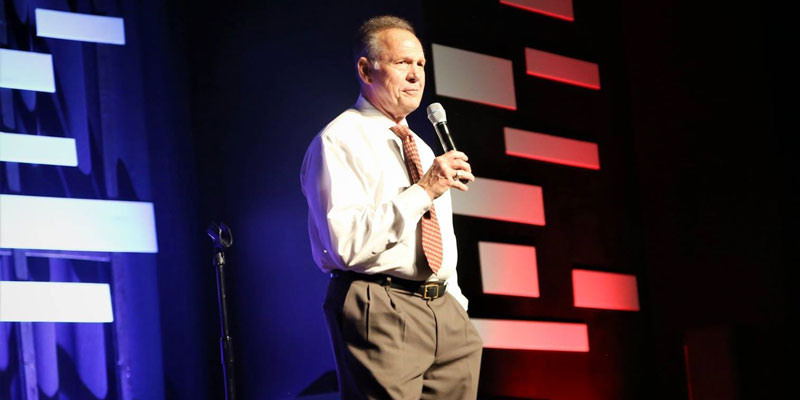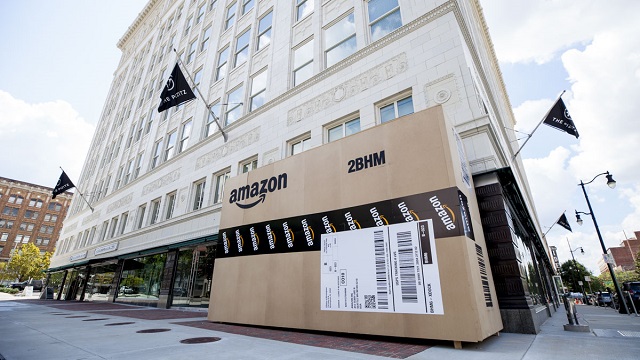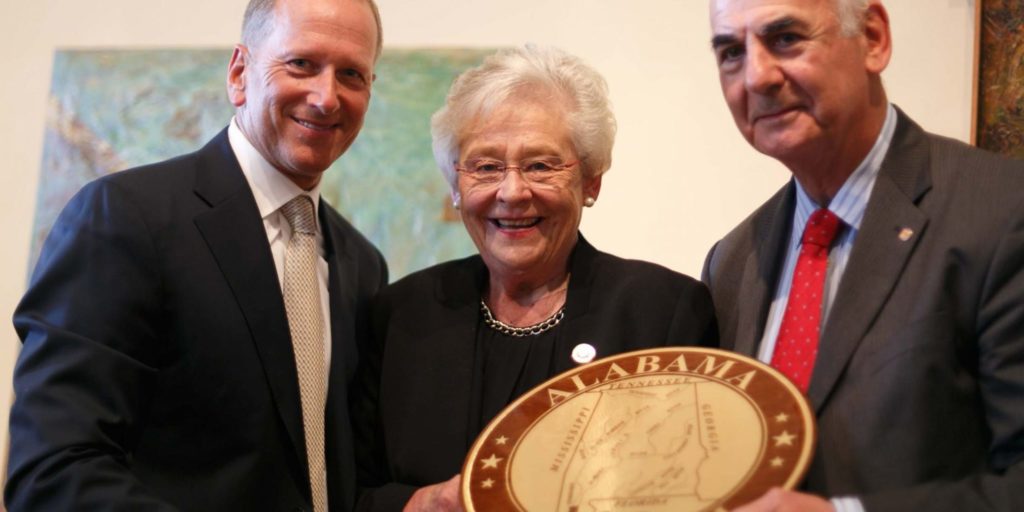
Over the weekend NPR aired a story about how Alabama’s business community fears that Roy Moore’s likely election to the Senate could hurt the state’s economic growth, costing jobs for the very people he seeks to represent.
“Roy Moore is a disaster for business and economic development. He was a disaster even before the allegations,” said Susan Pace Hamill, a business law professor at the University of Alabama. “The fear is that his presence will tip the scales, causing the business to choose somebody else.”
(Side note: The report failed to mention that Hammil was the Democratic Party’s nominee in its 2010 challenge to State Rep. Bill Poole (R-Tuscaloosa), so perhaps her view is just a tad bias.)
The rest of the story is nonsense, as well.
“Senator” Roy Moore isn’t going to be bad for business.
But then again, “Senator” Roy Moore isn’t necessarily going to be good for business, either.
Here’s why:
— First and foremost, we shouldn’t base our political decisions on economics alone. Our way of life is a broad tapestry of interests, often competing. Sometimes cultural issues trump economic issues (I’d rather lose my job than lose my country).
— That said, Alabama has a strong foundation and can weather any single storm. We were just named No. 6 on an influential economic development magazine’s survey of state business climates (and we achieved that ranking while having the embarrassing “Luv Guv” at the helm. That shows how little some politicians can actually mess things up).
— Alabama’s hope of landing a job producer doesn’t rest upon a single individual.
— Even if they did, a newly elected U.S. Senator has little to offer in such an arrangement. Because of the rules and committee processes, it takes senators years before they have the legislative clout to nab the types of appropriations or authorities needed to sweeten such economic development deals.
— Until then, young senators depend upon bones tossed to them by their party’s leadership or their colleagues for cooperation on other matters. (Roy Moore isn’t known for cooperating with leadership or making friends with people he doesn’t agree with, especially if it involves political horse-trading.)
— Aside from that, most companies don’t care about who a state has sitting in a Senate chamber 1,000 miles away, or what they’re saying (just so long as its pro-business on a macro level).
— In terms of political leaders, they care more about the people who can directly impact their company: the governor, leaders in the State House, local mayors, and other bodies like the school, zoning and utility boards.
— They care about how much water and power is going to cost, the local sales tax, whether they can get a road widened or extended, whether they can get a decent flow of educated employees, and many other pieces that have nothing, at least not directly, to do with the high-level debates in the U.S. Senate (just cut taxes and repeal federal regulations, and we’ll do fine down here).
— But our political leaders aren’t the only individuals who can impact a potential job producer’s decision to relocate to Alabama. Perhaps our best representatives come from the business community itself … the type of person a potential company’s CEO can understand and relate.
— Alabama has hundreds of world-class business executives who, if you knew them, would make you extremely proud of Alabama.
— Like our Founders envisioned, we’re a people who have a government not a government that has a people.
— Our economic fortune doesn’t rest in the hands of a single senator, or anyone else for that matter.
— It rests in the hands of every single Alabamian.
— And in that respect, it’s in good hands indeed.












